Blog Post No. 155
18th July 2017 – Updated on 22nd January 2019
Copyright (c) Dr Jim Byrne, 2018-2019
Dr Jim’s Counselling Blog: Recent books
If you have come to this page looking for recent books by Dr Jim Byrne (with Renata Taylor-Byrne), then here is the list of the latest books: on Lifestyle Counselling; Writing Therapy; and Diet and Exercise linked to emotional functioning; plus building successful couple relationships.
~~~
Book Descriptions:

By Dr Jim Byrne, with Renata Taylor-Byrne
Published by the Institute for E-CENT Publications
Available at Amazon outlets.***
The contents
In this book, you will find a very clear, brief, easy to read introduction to a novel approach to ‘counselling the whole person’. This emotive-cognitive approach does not restrict itself to mental processes. We go beyond what the client is ‘telling themselves’, or ‘signalling themselves’; or what went wrong in their family of origin. We also include how well they manage their body-brain-mind in terms of diet, exercise, sleep, and emotional self-management (including self-talk, or inner dialogue). And we propose that it is better for counsellors and therapists to operate in a primarily right-brain modality, and to use the left-brain, cognitive processes, secondarily.
The most important, and novel, chapters in this book are as follows:
Chapter 4, which summarizes our research on the impact of diet/nutrition and physical exercise on mental health and emotional well-being.
Chapter 5, which reviews the science of sleep hygiene, plus common sense insights, and presents a range of lifestyle changes to promote healthy sleep, and thus to improve mental and emotional well-being.
Chapter 9, which explains how to incorporate the learning from chapters 4 and 5 into any system of talk therapy or counselling.
There is also a chapter (8) on counselling individuals using our Emotive-Cognitive approach, in which there is a section (8.3(b)) on using the Holistic SOR model to explore many aspects of the lifestyle of the client.
For more information, please click the following link: Lifestyle Counselling book.***
~~~

By Dr Jim Byrne, with Renata Taylor-Byrne
Published by the Institute for E-CENT Publications
Available as a paperback at Amazon outlets.***
~~~
In this book, we set out to show you how you can quickly and easily process your current psychological problems, and improve your emotional intelligence, by writing about your current and historic difficulties. (Chapter 8 contains a detailed introduction to the subject of how to understand and manage your emotions).
This approach to writing about your emotional difficulties in order to resolve them has a long and noble tradition. Many nineteenth century poets were seeking to heal broken hearts or resolve personal dissatisfactions by the use of their poetry writing activities; and many novels are clearly forms of catharsis (or release of pent up emotions) by the author.
But not all writing is equally helpful, therapeutically speaking. If the writing is too negative; or too pessimistic; or simply makes the reader feel raw and vulnerable, then it is not going to have a positive effect. Later we will show you how to tackle therapeutic writing, (within the two main disciplines of writing therapy – [the scientific and the humanistic]), in order to make it maximally effective.
For more information, please click the following link: Write a New Life for Yourself.***
~~~

By Renata Taylor-Byrne and Jim Byrne
Published by the Institute for E-CENT Publications.
Available at Amazon outlets.***
1. Introduction
What we eat has a very powerful effect on our bodies and minds. And knowing and understanding how our body-mind reacts to the substances we feed ourselves is a crucial part of self-care.
For instance: depression can be caused by psychological reactions to losses and failures. But it can also be caused by certain kinds of body-brain chemistry problems, some of which can begin in the guts, and be related to bad diet, and lack of physical exercise. For example:
“If you are depressed while you suffer from regular yeast infections (like Candida Albicans), or athlete’s foot, or have taken antibiotics recently, there is a connection. Our brains are inextricably tied to our gastrointestinal tract and our mental well-being is dependent on healthy intestines. Depression, bipolar disorder, anxiety, and a host of other mental illnesses from autism to ADHD can be caused by an imbalance of gut microbes like fungi, and ‘bad’ bacteria”. (Source: Michael Edwards (2014))[i].
And when we take antibiotics, we kill off all of our friendly bacteria, and often what grows back first is the unfriendly stuff, like Candida Albicans, which can then cause depression, anxiety and other symptoms, as listed above.
Also, we can really benefit from knowing some of the latest ideas about where – (in our diets) – our depression, anxiety and anger can originate from; as provided by specialists who have devoted their lives to years of investigation into the workings of the human body and mind (or body-mind).
[i] Edwards, M. (2014) ‘The candida depression connection – How yeast leads to depression, anxiety, ADHD, and other mental disorders’. Available online at: https://www.naturalnews.com/047184_ candida_ depression_gut_microbes.html#
For more information, please click the following link: Diet, exercise and mental health.***
~~~
Top secrets for
Building a Successful Relationship:
Volume 1 – A blueprint and toolbox for couples and counsellors: C101
By Dr Jim Byrne
With Renata Taylor-Byrne BSc (Hons) Psychol 
The full paperback cover, by Charles Saul
~~~
On this web site, you will find enough information about our new book on couple relationships to inform your decision about buying it. We have posted the full Preface; plus the full set of (revised) Contents pages; plus a brief extract from each of the main chapters (1-13).
Pre-publication review
“I have recently finished reading Dr Jim Byrne’s immensely useful book (about love and relationship skills). This book is full of cutting edge thinking and priceless wisdom about couple relationships; which inspires us to believe that we can undoubtedly shape and improve our most important relationships. The approach is comprehensive (despite being Volume 1 of 3), covering as it does: the nature of love and relationships; common myths about love and relationships (which tend to lead young people astray); some illuminating case studies of couple relationships that have gone wrong; and very helpful chapters on communication skills, conflict styles, and assertive approaches to relationship; plus a very interesting introduction to the theory that our marriage partnership is shaped, for better or worse, in our family of origin. I particularly liked the chapters on how to manage boundaries in relationships; and how to change your relationship habits. I can highly recommend this ‘must read’ book to couples and counsellors alike”.
Dr Nazir Hussain
Positive Psychology and Integrative Counselling Services, Whitby, Ontario, Canada.
September 2018
~~~
Here’s a quick preview of part of the contents of Chapter 1:

This book has been designed to be helpful to two main audiences:
1. Anybody who is curious about how to build and maintain a happy, successful couple relationship, like a marriage or civil partnership (civil agreement), or simple cohabitation; and:
2. Any professional who works with individuals and couples who show up with problems of marital or couple conflict, breakdowns of communication, or unhappiness with the couple bond.
For more information about this book, please go to Top Secrets for Building a Successful Relationship.***
~~~
Recent publications
Facing and Defeating your Emotional Dragons:
How to process old traumas, and eliminate undigested pain from your past experience
~~~
Holistic Counselling in Practice:
An introduction to the theory and practice of Emotive-Cognitive Embodied-Narrative Therapy
~~~
Daniel O’Beeve’s Amazing Journey: From traumatic origins to transcendent love
The memoir of Daniel O’Beeve: a strong-willed seeker after personal liberation: 1945-1985
~~~
Or take a look at my page about my top eight books, here: Books about E-CENT Counselling and related topics.***
~~~
Introduction to first draft of this blog post
 It is now more than three months since my previous blog post was published. The delay was down to how busy I’ve been, largely because of writing my latest book, which is now available at Amazon: Unfit for Therapeutic Purposes: The case against Rational Emotive and Cognitive Behavioural Therapy.***
It is now more than three months since my previous blog post was published. The delay was down to how busy I’ve been, largely because of writing my latest book, which is now available at Amazon: Unfit for Therapeutic Purposes: The case against Rational Emotive and Cognitive Behavioural Therapy.***
My main role in life, as a doctor of counselling, is to see individual clients who have ‘problems of daily living’ which they cannot resolve on their own. I help people with problems of anxiety, depression, anger, couple conflict, attachment problems, and other relationship problems. Dr Jim’s Counselling Division.***
 However, I also write books, blogs and web pages; and articles or papers on counselling-related topics. And I help individuals, from time to time, who are struggling with their creative or technical writing projects. Sometimes I help individual writers to stay motivated, or to process their repeated rejection by an unreceptive and uncaring world.
However, I also write books, blogs and web pages; and articles or papers on counselling-related topics. And I help individuals, from time to time, who are struggling with their creative or technical writing projects. Sometimes I help individual writers to stay motivated, or to process their repeated rejection by an unreceptive and uncaring world.
~~~
The frustrations of writing
It is far from easy being a creative writer. Frustrations abound, from conception of a new and useful writing project; doing the research; writing early drafts; then polishing, editing and publishing; and then trying to sell the end product in a world which is awash with information-overload.
~~~
In my book on REBT, I wrote about that period like this:
“As early as August 2003 (and probably earlier), I was writing about the fact that stress was a multi-causal problem. That idea contradicts the ABC theory, which asserts that all emotional distress (including the common manifestations of stress: which include anger, anxiety and depression) are caused exclusively by the client’s Beliefs (B’s). Here is an example of my writing from August 2003:
“I have developed a stress management programme consisting of fifteen strategies which help you to work on your body, your emotions, your thinking, and your stress management skills. This programme allows you to develop a stress-free life.
…

“You may also be affected by many life-change stressors, e.g. Moving house; death of your spouse or other loved one; divorce; marriage; redundancy; bullying at work; promotion; demotion; change of lifestyle; etc.
“Your stress level also depends upon such factors as your diet, exercise, what you tell yourself about your life pressures, and so on. (What you tell yourself about your pressures is called your “self-talk”).
“And a lot depends upon your sense of control. Can you control your workload, your work environment, and/or your social life? Are you confident and assertive enough to at least try to control your workload, your work environment, and/or your social life? Are you wise enough to learn how to stoically accept those things which you clearly cannot control? The more control you have, the less stress you feel, according to the Whitehall Studies, conducted by Michael Marmot, beginning in 1984.” (Original source in footnotes)[1].
However, the frustration was this: Although I had expertise about managing stress; and although I had packaged 15 different strategies for getting your stress under control, very few people bought my book!
And today, I believe, most people do not understand stress: How it destroys their happiness, damages their physical health, and causes all kinds of emotional problems.
Tough stuff! This is the lot of the creative writer. The world most often seems to not be ready for our insights!
~~~
People love simplicity and side-tracks
While my stress book was not selling to any reasonable degree, the simple books about the ABC model of REBT, produced by Dr Albert Ellis, were selling much better. Those books presented an exaggerated claim that they could help the reader to quickly and relatively effortlessly get rid of any problem, simply by changing their beliefs about the problems they encountered.
My REBT book demonstrates that there was never any solid evidence that this claim is true. It also demonstrates that, in the process, the REBT/CBT model blames the client for their own upsets, thus excusing the harshness of current government policy in the US and the UK, where the rich are enriched and the poor are squashed! That squashing process hurts, and causes emotional distress and physical health problems.
Here is the evidence that it is not the individual’s beliefs, but the social environment that has the most impact on mental health and emotional well-being:
While psychotherapists like Albert Ellis tended to emphasize the role of the counselling client’s beliefs in the causation of anger, anxiety, depression, and so on, Oliver James, and his concept of ‘affluenza’, tends to emphasize living in a materialistic environment. As Dr James writes: “Nearly ten years ago, in my book Britain on the Couch, I pointed out that a twenty-five-year-old American is (depending on which studies you believe) between three and ten times more likely to be suffering depression today than in 1950. … In the case of British people, nearly one-quarter suffered from emotional distress … in the past twelve months, and there is strong evidence that a further one-quarter of us are on the verge thereof. … (M)uch of this increase in angst occurred after the 1970s and in English-speaking nations”. People’s beliefs have not changed so much over that time. This is evidence of the social-economic impact of the post-Thatcher/Reagan neo-liberal economic policies!
Oliver James (2007) Affluenza: How to be successful and stay sane. Page xvi-xvii. (63).
~~~
Conclusion
If you are a creative writer, and you want to write your own autobiography, or autobiographical novel, or you need support with any aspect of your creative writing process, then I can help you.
Coaching, counselling and therapy for writers.***
Or you could take a look at my current books in print.***
Or take a look at my page about my top eight books, here: Books about E-CENT Counselling and related topics.***
~~~
That’s all for now.
Best wishes,
Jim
Dr Jim Byrne
Doctor of Counselling
ABC Coaching and Counselling Services
Telephone: 01422 843 629
Email: jim.byrne@abc-counselling.com
~~~
 We are here, and it is now. And it seems this now, where we are, is the same now we were in before the Christmas and New Year fantasies arrived to try to sweep us off our feet.
We are here, and it is now. And it seems this now, where we are, is the same now we were in before the Christmas and New Year fantasies arrived to try to sweep us off our feet.
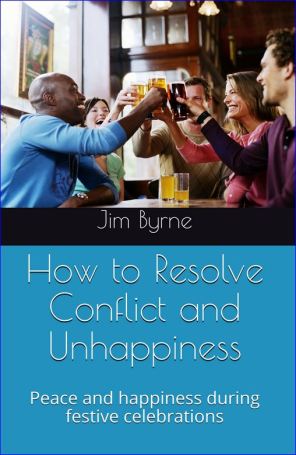 In this book, I have presented a very powerful ‘technology’ for overcoming emotional distress – regardless of the cause. I have also included special advice for couples about how to communicate so as to avoid conflict – or to manage that conflict better; plus special sections on insights into how to communicate more effectively with loved ones; and how to understand and improve your own ‘conflict style’.
In this book, I have presented a very powerful ‘technology’ for overcoming emotional distress – regardless of the cause. I have also included special advice for couples about how to communicate so as to avoid conflict – or to manage that conflict better; plus special sections on insights into how to communicate more effectively with loved ones; and how to understand and improve your own ‘conflict style’.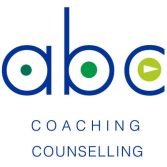 Doctor of Counselling
Doctor of Counselling


 That’s all for now. We will keep you posted when
That’s all for now. We will keep you posted when 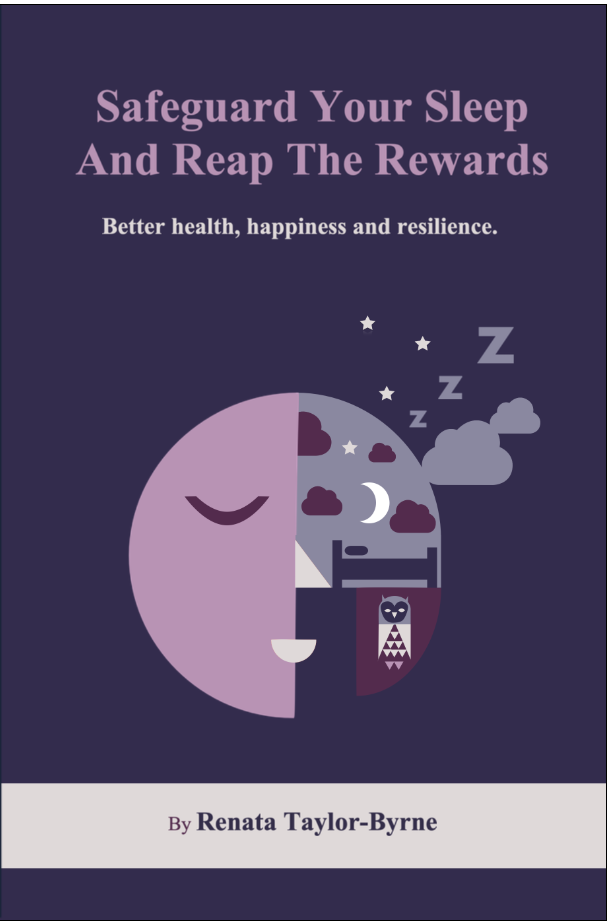
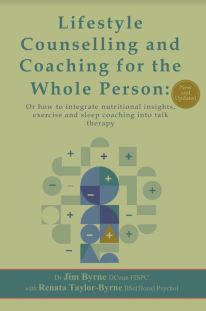
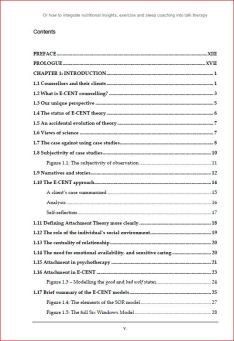 Here are some extracts from the Contents Pages:
Here are some extracts from the Contents Pages: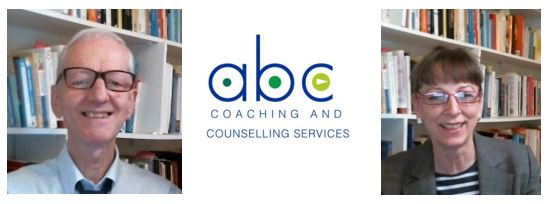





 It is now more than three months since my previous blog post was published. The delay was down to how busy I’ve been, largely because of writing my latest book, which is now available at Amazon:
It is now more than three months since my previous blog post was published. The delay was down to how busy I’ve been, largely because of writing my latest book, which is now available at Amazon:  However, I also write
However, I also write 


 I could not wait, so I decided to nibble at the beginnings of Dr Claude Steiner’s book (on emotional literacy), so I don’t keep you waiting too long…
I could not wait, so I decided to nibble at the beginnings of Dr Claude Steiner’s book (on emotional literacy), so I don’t keep you waiting too long… I found this statement most interesting, because it seemed to me to echo some of the things I have learned about the early life of Dr Albert Ellis, the creator of Rational Emotive Behaviour Therapy (REBT), who – once upon a time – had a profound effect upon my philosophy of life, (but not any more!) Ellis did not cry; did not admit his tender emotions; did not have a deep attachment to anybody; and may have been somewhere on the Asperger spectrum – somewhat autistic.
I found this statement most interesting, because it seemed to me to echo some of the things I have learned about the early life of Dr Albert Ellis, the creator of Rational Emotive Behaviour Therapy (REBT), who – once upon a time – had a profound effect upon my philosophy of life, (but not any more!) Ellis did not cry; did not admit his tender emotions; did not have a deep attachment to anybody; and may have been somewhere on the Asperger spectrum – somewhat autistic. How sad to be an emoitonal illiterate!
How sad to be an emoitonal illiterate! I should also add that I was rarely conscious of where I was, or what I was thinking or feeling.
I should also add that I was rarely conscious of where I was, or what I was thinking or feeling. Some people seek to gain power by becoming financially successful, and rising through the ranks of large organizations. However, this is not a particularly satisfying activity for most people. Most people would however like to have good relationships and enjoyable work. This, according to Steiner, would help us to feel a sense of personal power.
Some people seek to gain power by becoming financially successful, and rising through the ranks of large organizations. However, this is not a particularly satisfying activity for most people. Most people would however like to have good relationships and enjoyable work. This, according to Steiner, would help us to feel a sense of personal power. In addition to Dr Steiner’s book, you might also want to take a look at my books on
In addition to Dr Steiner’s book, you might also want to take a look at my books on